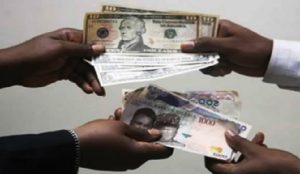 The Nigerian naira commenced the new month on a positive trajectory, with a surge in value to N1,278.58 against the US dollar.
The Nigerian naira commenced the new month on a positive trajectory, with a surge in value to N1,278.58 against the US dollar.
This marked an increase of N30.81 compared to last Thursday’s rate, where it stood at N1,309.39 per dollar. The indicative exchange rate for the Nigerian Autonomous Foreign Exchange Market closed below the N1,300 ceiling, a notable milestone since January 26 of this year, according to data from FMDQ Securities.
This noteworthy appreciation follows a period of depreciation, with the naira hitting a low of N1,615/$1 on March 13, 2024. However, since the implementation of several forex policies by the Central Bank of Nigeria (CBN), the naira has experienced a remarkable 21% gain against the US dollar since March.
The surge in liquidity within the forex market can be attributed to a series of key reforms introduced by the CBN. These reforms include the unification of exchange rate windows, liberalization of the FX market, clearance of FX backlog obligations for banks and airlines, implementation of a Price Verification System, imposition of limits on banks’ Net Open Position, removal of the daily cap on remunerable Standing Deposit Facility, and an overhaul of the Bureau De Change segment.
Forex turnover serves as a vital metric, reflecting the total value of all foreign exchange transactions completed within a specific timeframe. It offers insights into the liquidity and vibrancy of the forex market. High turnover rates indicate an active market with numerous participants engaging in currency trading, which can signal investor confidence and economic stability.
Over the past two weeks, the Central Bank of Nigeria and other banking institutions have substantially increased dollar supply to the foreign exchange market by $2.5 billion. Additionally, forex transactions between willing sellers and buyers at the Nigerian Autonomous Foreign Exchange Market decreased by 106%, reaching $111.18 million on Tuesday compared to $857 million at the close of trading activity last Thursday.
Following the Easter holiday, forex trading resumed on Tuesday, witnessing the naira’s appreciation in the parallel market to N1,220. Bureau De Change operators bought at N1,220 per dollar and sold to customers either in cash or through transfers at N1,265/$, resulting in a profit margin of N30. This represents a 1.99% appreciation compared to the previous week’s closing rate of N1,280.
The strengthening of the naira in both the official and parallel market segments can be attributed to the Central Bank of Nigeria’s clearance of all verified FX backlogs, including the final tranche of $1.5 billion. Currency traders have noted that the appreciation of the naira is due to reduced demand for the US dollar and the CBN’s decision to sell foreign exchange directly to operators.
Ibrahim Yahu, a BDC operator at Wuse Zone 4, commented on the situation, stating, “The demand for dollars has significantly decreased, and the naira is appreciating because of the new rate set by the CBN for traders. The CBN selling directly to us has greatly facilitated trading activities.”
Malam Yunusa, another trader, expressed confidence that the naira would continue to strengthen against the dollar, as traders actively support the growth of the Nigerian currency.
Aminu Gwadabe, President of the Association of Bureaux de Change Operators of Nigeria, highlighted that the reactivation of BDCs has notably improved dollar liquidity in the retail segment of the forex market. This, coupled with tightening monetary policy, increased investment in government instruments, and the clearance of $7 billion forex backlog forward commitments, has contributed to a favorable outlook for the naira.
Afrinvest analysts have predicted that the naira will maintain a similar trading band throughout April, as the CBN continues its efforts to manage liquidity and attract more capital.
